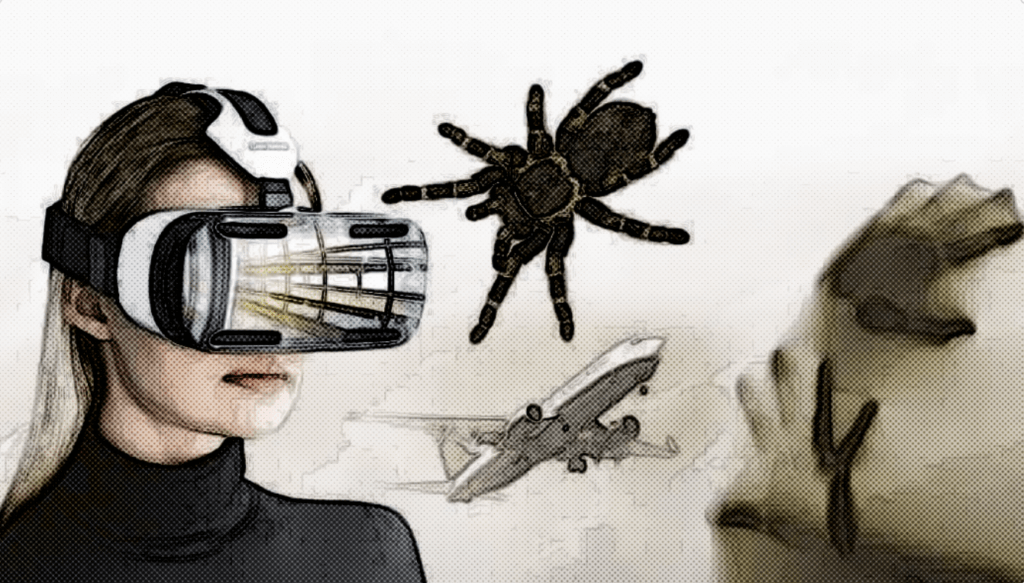When we’re afraid of something, we tend to avoid the thing we fear, whether it be objects, activities, or situations. That avoidance can help reduce fear and anxiety in the short term, but over time this avoidance can reinforce and worsen the fear intensity.
What is Exposure Therapy?
Exposure therapy helps people confront their fears by breaking the pattern of safety behaviors and avoidance.
Exposure therapy can help break the pattern of avoidance and fear. Therapists create a safe place or environment for you to bravely expose yourself to what feels terrifying.
This safe exposure to the objects, situations, or activities you fear helps reduce the fear, decrease avoidance, and change your overall relationship with the world.
What Conditions Can Exposure Therapy Treat?
The effectiveness of exposure therapy has been researched extensively and can be helpful for a range of mental health conditions, such as:
- Generalized Anxiety Disorder
- Obsessive-Compulsive Disorder (OCD)
- Panic Disorder
- Specific Phobias
- Posttraumatic Stress Disorder
- Social Anxiety Disorder
- Agoraphobia
Variations of Exposure Therapy
- In Vivo Exposure: Facing your fear in real life. Of course, there typically is a gradual build-up to real-life exposure.
- Imaginal Exposure: Vividly imagining your fear with your therapist as they help you work through the feelings and sensations that come up.
- Virtual Reality Exposure: Virtual reality technology can help you face your fear in a safe, controlled space. At CBT Baltimore, we use VR to enhance our exposure work.
- Interoceptive Exposure: Deliberately bringing on a physical sensation that is harmless yet feared.
How Does Exposure Therapy Work?
Exposure therapy is typically used in conjunction with other types of therapy, like cognitive-behavioral therapy or response prevention. You and your exposure therapist work together to change the relationship with the perceived threat, risk, uncertainty, and intrusive thought.
Exposing yourself to the very thing you fear will help build the ‘muscle’ to handle them better. This type of therapy creates new pathways in our brains that allow us to positively navigate and overcome our fears.
During exposure therapy
- It’s a collaborative process between you and your exposure therapist (clinician).
- You will never be forced to do anything you don’t want to or anything your clinician is not willing to do themselves.
- You and your clinician will create a plan and gradually, intentionally, and frequently engage in personal values development and pursuits that improve your overall quality of life.
Consider a Session
If you think exposure therapy or any of our psychotherapy services would work well for whatever you’re currently going through, we’d love to help.
Contact us to learn more, or feel free to request a session.

